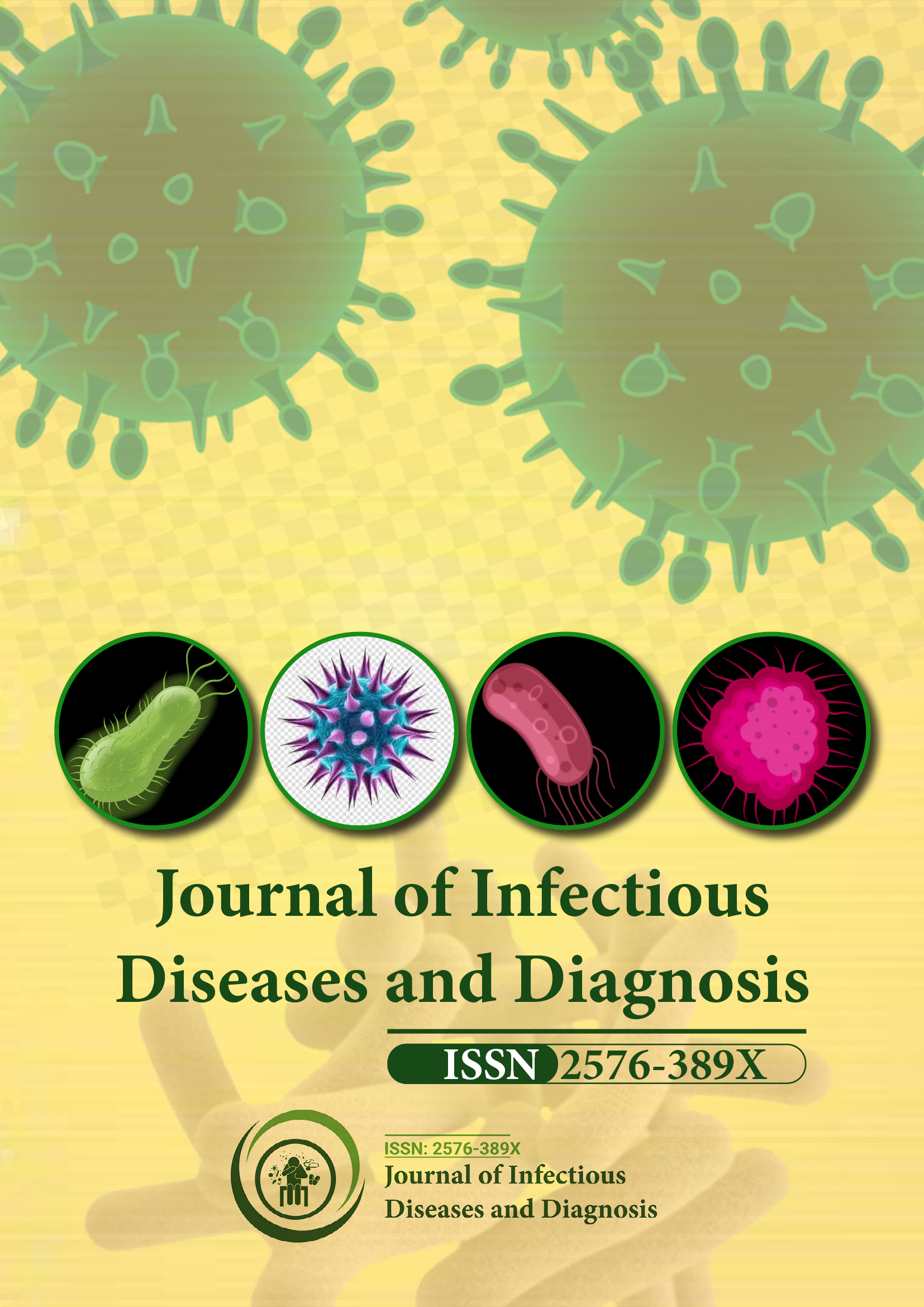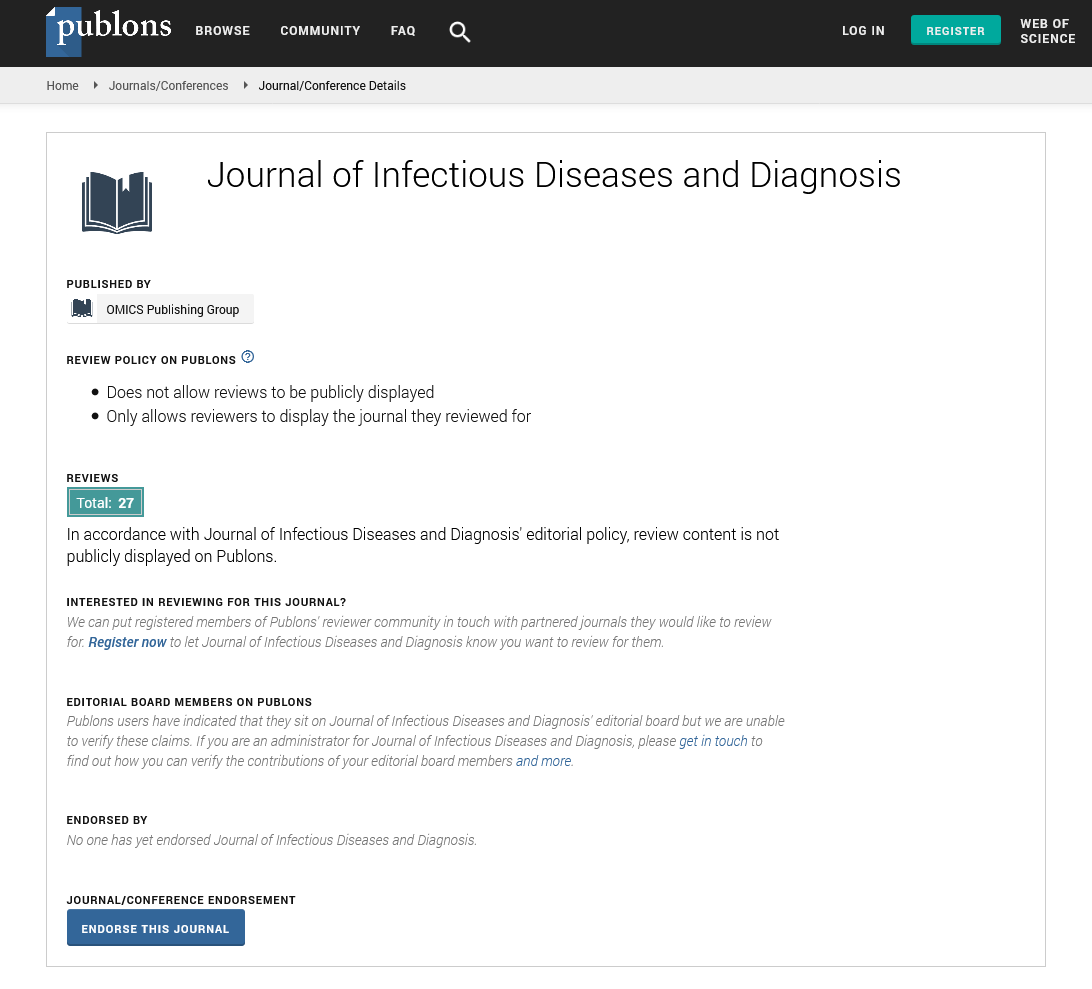Indexed In
- RefSeek
- Hamdard University
- EBSCO A-Z
- Publons
- Euro Pub
- Google Scholar
Useful Links
Share This Page
Journal Flyer

Open Access Journals
- Agri and Aquaculture
- Biochemistry
- Bioinformatics & Systems Biology
- Business & Management
- Chemistry
- Clinical Sciences
- Engineering
- Food & Nutrition
- General Science
- Genetics & Molecular Biology
- Immunology & Microbiology
- Medical Sciences
- Neuroscience & Psychology
- Nursing & Health Care
- Pharmaceutical Sciences
Perspective - (2023) Volume 8, Issue 2
Maternal Immunity: A Shield against Infectious Diseases
Juana Diez*Received: 01-Mar-2023, Manuscript No. JIDD-23-20788; Editor assigned: 03-Mar-2023, Pre QC No. JIDD-23-20788 (PQ); Reviewed: 17-Mar-2023, QC No. JIDD-23-20788; Revised: 24-Mar-2023, Manuscript No. JIDD-23-20788 (R); Published: 31-Mar-2023, DOI: 10.35248/2576-389X.23.08.207
About the Study
Maternal immune protection against infectious diseases is a critical mechanism that helps protect infants from infections during the vulnerable neonatal period. The immune system of the mother plays a crucial role in protecting the fetus during pregnancy and the newborn after delivery. The transfer of maternal antibodies and immune cells across the placenta, through breast milk and other maternal tissues, provides passive immunity that helps prevent infections in the neonate.
During pregnancy, the maternal immune system undergoes significant changes to prevent the rejection of the fetus, which has a unique set of antigens inherited from the father. This process involves a shift towards a Th2-type immune response that promotes antibody production and immune tolerance. This shift is crucial for fetal development and protection from maternal immune attacks.
Maternal antibodies are transferred to the fetus through the placenta in a process called trans placental transfer. These antibodies provide passive immunity to the neonate and help protect against a range of infections, including viral, bacterial, and fungal pathogens. The extent of antibody transfer depends on the type of antibody and the timing of exposure to the antigen. For example, IgG antibodies, which are the most common type of antibody in the blood, can cross the placenta and provide protection to the neonate against a range of infections.
The timing of exposure to the antigen is also critical for optimal antibody transfer. Antibodies produced by the mother in response to an infection may take several weeks to reach peak levels in the blood. Therefore, exposure to the antigen towards the end of pregnancy or shortly before delivery may result in suboptimal antibody transfer to the neonate. In contrast, exposure to the antigen earlier in pregnancy may result in higher levels of antibody transfer to the neonate.
Breast milk is another important source of maternal immune protection against infectious diseases. Breast milk contains a range of immune factors, including antibodies, cytokines, and other immune cells that help protect the neonate from infections. Breast milk provides a continuous source of passive immunity that helps protect against infections during the first few months of life when the neonate's immune system is still developing.
Breast milk also contains a range of other factors that promote immune development and maturation in the neonate. For example, breast milk contains prebiotics, probiotics, and other components that promote the growth of beneficial bacteria in the gut. These bacteria play a critical role in immune development and help protect against infections.
Maternal immune protection against infectious diseases is not limited to the transfer of antibodies and immune cells. The placenta also plays a critical role in protecting the fetus from infections. The placenta acts as a barrier that prevents the entry of pathogens from the maternal circulation into the fetal circulation. The placenta also contains a range of immune cells and immune factors that help protect the fetus from infections.
However, some pathogens are capable of crossing the placenta and causing infections in the fetus. These infections can result in serious complications, including stillbirth, preterm delivery, and neonatal death. Examples of pathogens that can cross the placenta include Cytomegalovirus, Toxoplasma gondii, Rubella, and Syphilis.
In addition to the passive immunity provided by maternal antibodies and immune cells, the neonate also has its own immune system. However, the neonatal immune system is immature and not fully functional at birth. This immaturity results in a higher susceptibility to infections, particularly during the first few months of life.
The neonatal immune system undergoes significant development and maturation during the first few months of life. This process is influenced by a range of factors, including exposure to microbes, nutrition, and other environmental factors. Breastfeeding plays a critical role in promoting immune development and maturation in the neonate. Breast milk contains a range of factors that promote the growth of beneficial bacteria in the gut and help promote immune development.
Citation: Diez J (2023) Maternal Immunity: A Shield against Infectious Diseases. J Infect Dis Diagn. 8:207.
Copyright: © 2023 Diez J. This is an open-access article distributed under the terms of the Creative Commons Attribution License, which permits unrestricted use, distribution, and reproduction in any medium, provided the original author and source are credited.

